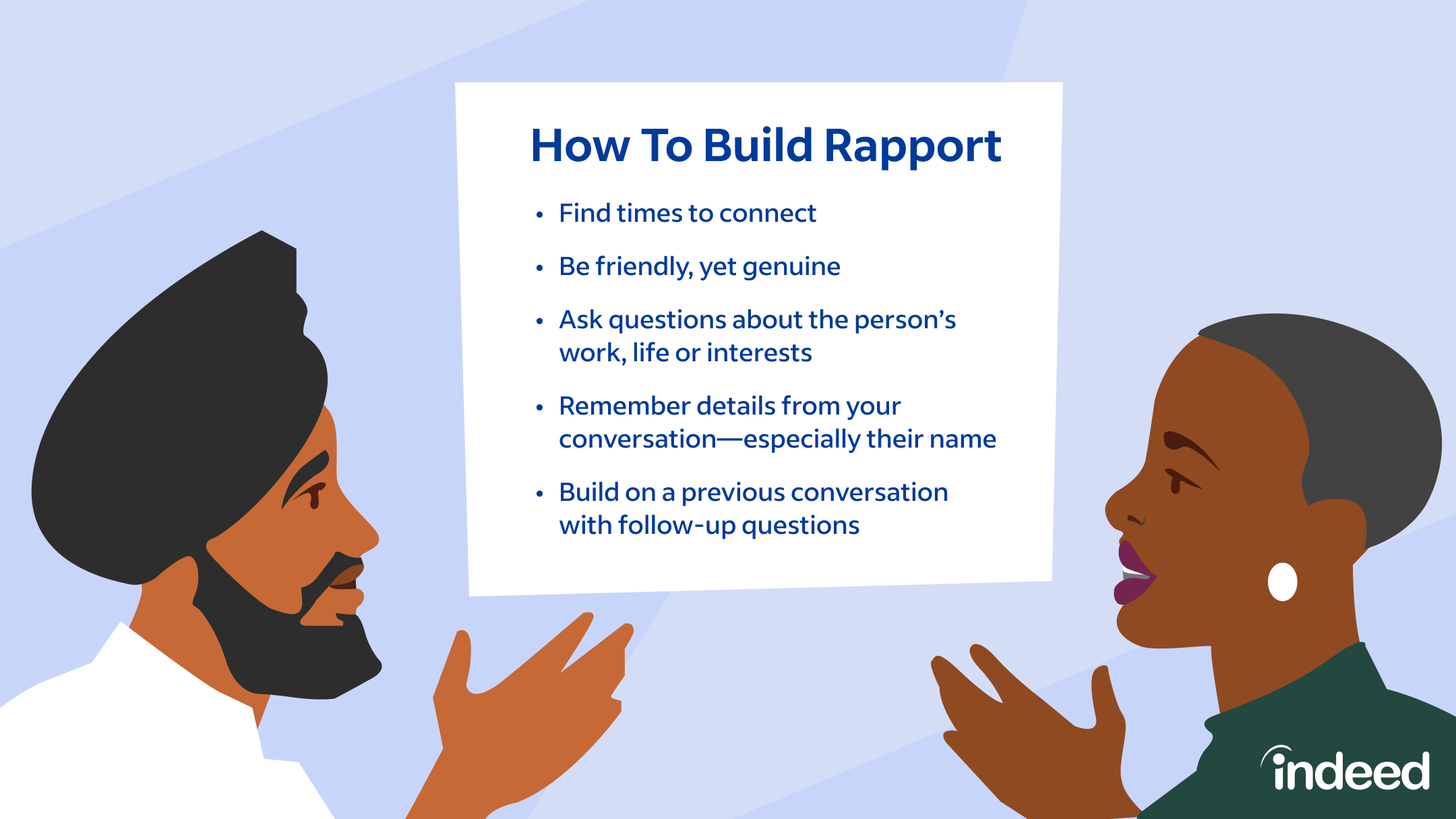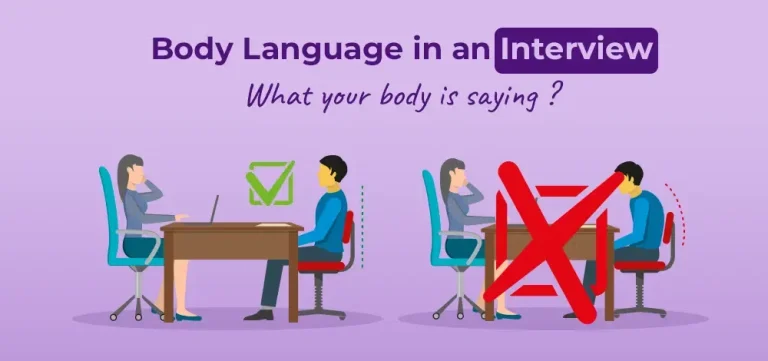How To Build Rapport?
Building rapport involves active listening, showing genuine interest, and finding common ground with others. By understanding their perspective and communicating effectively, you can establish a strong connection and foster a positive relationship.
Setting The Stage
Welcome to the first section of our blog series on How to Build Rapport. In order to establish a strong connection with someone, you need to set the stage for successful communication. This involves creating a positive environment and finding common ground. Let’s dive deeper into these two key components.
Creating A Positive Environment |
To initiate a fruitful conversation, it’s crucial to create a positive environment where both parties feel comfortable and at ease. Here’s how you can achieve this:
- Be welcoming and approachable, smiling warmly and maintaining an open posture.
- Pay attention to your body language, ensuring it aligns with your words.
- Offer genuine compliments and show sincere interest in the other person’s thoughts and feelings.
- Create a comfortable physical space by making sure it is clean, organized, and free from distractions.
- Use light background music or calming scents to promote a relaxing atmosphere.
Establishing Common Ground |
Once you have set a positive tone, the next step is to establish common ground with the other person. Finding shared interests and experiences will help to build rapport and foster a deeper connection. Here are some strategies to accomplish this:
- During conversations, actively listen and look for cues that indicate areas of common interest.
- Ask open-ended questions to encourage the other person to share their perspectives and experiences.
- Share your own experiences and anecdotes that relate to the topic at hand.
- Be empathetic and validate the other person’s opinions, even if they differ from your own.
By creating a positive environment and establishing common ground, you are effectively setting the stage for building rapport. In the next section, we will explore the power of effective communication techniques. Stay tuned!
The Power Of Active Listening
Rapport is a crucial element in building strong relationships, whether it’s with friends, family, or colleagues. The power of active listening cannot be underestimated in this process. By actively listening, you show that you genuinely care about the other person’s thoughts, feelings, and experiences. In this article, we will explore key techniques for active listening that can help you strengthen rapport and foster meaningful connections.
Paying Attention And Avoiding Distractions
One of the primary aspects of active listening is paying full attention to the person you are conversing with. By giving your undivided attention, you demonstrate respect and interest in what they have to say. Avoiding distractions is essential to maintain focus. Here are some strategies to help you stay present:
- Find a quiet and comfortable environment: Choose a setting where you can minimize external disturbances, such as noise or visual distractions.
- Put away electronic devices: Keep your phone on silent mode or away from reach to prevent interruptions or temptation to check notifications.
- Maintain eye contact: Directly looking at the person shows that you are fully engaged in the conversation and value their words.
- Avoid interrupting or rushing: Allow the person to express themselves fully without interrupting or rushing them. This encourages them to share more openly.
- Use verbal cues: Providing short phrases or sounds, such as “I see” or “uh-huh,” lets the person know you are actively listening and encourages them to continue.
Using Verbal And Non-verbal Cues
Verbal and non-verbal cues are powerful tools to display your attentiveness and understanding. By incorporating both, you reinforce your active listening skills. Consider the following techniques:
- Nodding and smiling: Non-verbal cues like nodding and smiling demonstrate agreement, understanding, and appreciation for the speaker’s words.
- Mirror body language: Mirroring the speaker’s body language can help establish a deeper connection and make them feel more comfortable.
- Paraphrasing and reflecting: Summarize and restate what the person said in your own words. This shows that you are actively processing their message and seeking clarification when needed.
- Asking open-ended questions: Encourage further dialogue by asking open-ended questions that require more than a simple yes or no answer. This fosters deeper exploration of thoughts and emotions.
- Responding with empathy: Show empathy and understanding by acknowledging the person’s emotions and validating their experiences.
Active listening is powerful in building rapport because it creates a safe and trusting environment that encourages open communication. Incorporating these techniques will not only enhance your listening skills but also strengthen the connections you form with others.
Building Genuine Connections
In any relationship, whether personal or professional, building rapport is key to establishing trust and creating a solid foundation. When it comes to building genuine connections, two essential elements to consider are showing empathy and understanding and finding shared interests or experiences. Let’s explore these strategies in detail:
Showing Empathy And Understanding
One of the most effective ways to build rapport is by showing empathy and understanding towards the other person. Empathy is the ability to put yourself in someone else’s shoes and understand their feelings and perspectives. When you demonstrate empathy, others feel heard and valued, which strengthens the bond between you. Here’s how you can show empathy and understanding:
- Active Listening: Pay full attention to what the other person is saying, without interrupting or judging. This shows that you genuinely care about their thoughts and opinions.
- Validation: Acknowledge and validate their emotions and experiences. Let them know that you understand and empathize with what they’re going through.
- Reflective Responses: Respond to the person’s words and emotions with empathy and sensitivity. Repeat what they’ve said in your own words to show that you’re actively listening and trying to understand.
Finding Shared Interests Or Experiences
Another powerful way to build rapport and establish a genuine connection is by finding shared interests or experiences. When you discover common ground, a sense of camaraderie is created, fostering a deeper connection. Here’s how you can find shared interests or experiences:
- Ask Open-Ended Questions: Engage in conversations by asking open-ended questions that allow the other person to share their interests and experiences. This demonstrates your interest in getting to know them better.
- Active Engagement: Show genuine curiosity and actively engage in conversations about shared interests. Ask follow-up questions and share your own experiences, creating a reciprocal exchange of ideas and stories.
- Participate in Activities Together: Explore shared hobbies or activities where you can bond over a common interest. Whether it’s joining a sports team or attending a cooking class, shared experiences strengthen the connection between you.
Building rapport and establishing genuine connections is a fundamental skill that can enhance relationships in all areas of life. By showing empathy and understanding and finding shared interests or experiences, you can create meaningful connections that stand the test of time.

Credit: paperbell.com
Effective Communication Techniques
Effective communication is the cornerstone of building rapport in any relationship, be it personal or professional. By using the right communication techniques, you can establish a strong connection with others, foster trust, and enhance understanding. In this blog post, we will explore two powerful techniques that can help you improve your communication skills: Using Open-Ended Questions and Reflective Listening and Paraphrasing.
Using Open-ended Questions
One effective way to build rapport and encourage meaningful conversation is by using open-ended questions. Unlike closed-ended questions that elicit a simple “yes” or “no” response, open-ended questions prompt the other person to provide more in-depth answers, allowing for a deeper exploration of thoughts, feelings, and experiences. These questions start with words like “what,” “how,” and “why,” and encourage the speaker to express themselves fully.
Benefits of using open-ended questions include:
- Encouraging active engagement and participation in the conversation.
- Fostering a safe and non-judgmental environment for sharing thoughts and feelings.
- Generating thoughtful and reflective responses.
- Uncovering hidden motivations, needs, and desires.
- Building a deeper understanding of the other person’s perspective.
Reflective Listening And Paraphrasing
Reflective listening and paraphrasing are powerful techniques that demonstrate your active engagement in the conversation and show the other person that you value their words and opinions. It involves restating or summarizing the speaker’s message in your own words to ensure mutual understanding and confirm that you have accurately interpreted what they said.
Benefits of reflective listening and paraphrasing include:
- Showing empathy and genuine interest in the other person’s point of view.
- Providing an opportunity for clarification and correction of misunderstandings.
- Building trust and rapport by making the other person feel heard and understood.
- Encouraging further elaboration and sharing of information.
- Enhancing overall communication and reducing miscommunication.
By incorporating these effective communication techniques into your interactions, you can establish a strong rapport with others, foster meaningful connections, and improve your overall communication skills. Start using open-ended questions and practice reflective listening and paraphrasing, and you will see a significant positive impact on your relationships and interactions.
Building Trust And Rapport Over Time
Building Trust and Rapport Over Time is a crucial aspect of developing meaningful connections with others. It involves consistently demonstrating consistency and reliability while maintaining authenticity. Let’s explore these two factors in more detail:
Consistency And Reliability
Consistency and reliability play a pivotal role in establishing trust and rapport with others. By consistently delivering on your promises and commitments, you show that you are dependable and trustworthy, which in turn strengthens the bond between you and the other person.
Being reliable means being someone others can count on. Whether it’s meeting deadlines, keeping appointments, or fulfilling obligations, demonstrating reliability builds a solid foundation of trust. Consistently delivering high-quality work, following through on your word, and being there when needed will undoubtedly strengthen the rapport you have with others.
Maintaining Authenticity
Maintaining authenticity is equally important when building rapport over time. Being genuine and true to yourself helps establish a deeper connection with others. People appreciate authenticity because it shows that you are being honest and transparent in your interactions.
To maintain authenticity, stay true to your values and beliefs. Avoid putting on a facade or pretending to be someone you’re not. Embrace your uniqueness and let it shine through your words and actions. When you present yourself authentically, others will sense your sincerity, making it easier to build rapport and trust.
In conclusion, building trust and rapport over time involves consistency, reliability, and authenticity. By embodying these qualities, you show others that you are trustworthy and genuine, creating stronger connections that stand the test of time.

Credit: uk.indeed.com
Frequently Asked Questions Of How To Build Rapport?
How Can You Build Rapport Quickly?
Building rapport quickly involves active listening, showing genuine interest, and finding common ground to establish connection.
What Are Some Effective Ways To Establish Rapport?
Some effective ways to establish rapport include using open body language, mirroring and matching, and finding shared interests or experiences.
Why Is Building Rapport Important In Relationships?
Building rapport is important in relationships as it enhances trust, communication, and understanding between individuals, leading to stronger and more meaningful connections.
Conclusion
Building rapport is a crucial skill for effective communication and forming meaningful connections. By implementing the strategies discussed in this blog post, such as active listening, observing body language, and finding common ground, you can establish trust and foster positive relationships with others.
Remember, building rapport takes time and practice, but the rewards are invaluable in personal and professional settings. So start applying these techniques today and watch your rapport-building skills soar!


